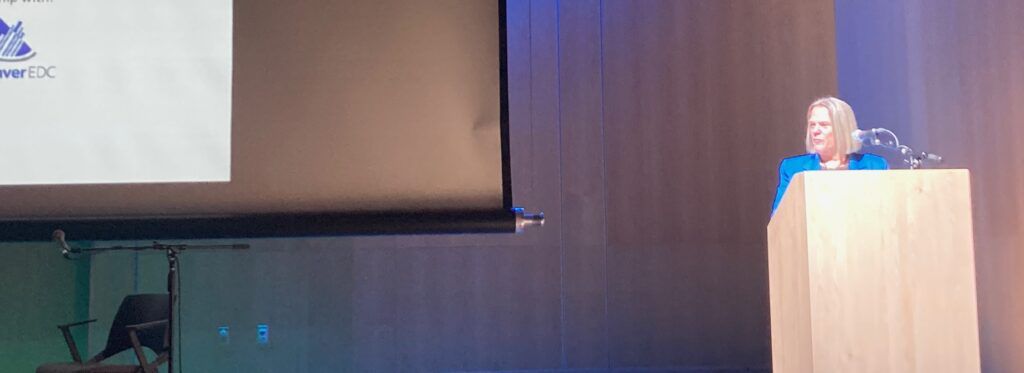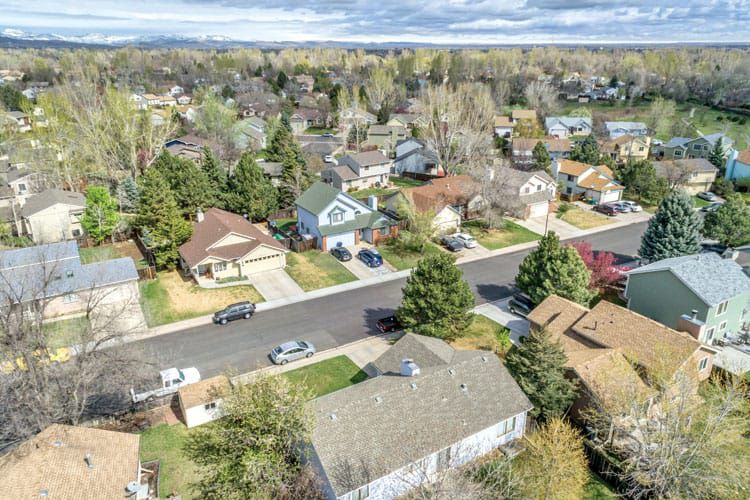Longmont’s economic fundamentals are sound but headwinds persist

LONGMONT — Longmont, like most cities across the Boulder Valley and Northern Colorado, has bounced back admirably from the COVID-19 era economic slowdown, but headwinds such as affordability and labor force issues are poised to persist into 2023 and beyond.
“I feel pretty confident in saying we’ve recovered,” Longmont Economic Development Partnership interim CEO Stephanie Pitts-Noggle said Tuesday at the group’s annual Advance Longmont Economic Summit.
In 2022, Longmont’s gross regional product, a local measure of economic output, was about $8.7 billion, up nearly 8% year over year, according to LEDP data. The city experienced 7.7% employment growth during the decade between 2012 and 2022.

Unlike some national prognosticators, Patty Silverstein, president and chief economist at Development Research Partners, said she is “not in the recession camp.” The United States’ economy, she predicted, will expand by about 1.4% in 2023.
In a recent LEDP survey of Longmont business leaders, Pitts-Noggle said, “we had an overwhelming response that quality of life is the top reason why businesses like doing business in Longmont.”
Unfortunately, the quality of life available to city residents has proven inaccessible to a significant portion of its workforce. LEDP’s survey found that cost of living was a common complaint from Longmont business operators.
AGC Biologics Inc.’s Longmont site general manager Tony Fraij noted during a panel discussion Tuesday that many workers, even those who earn a solid living, opt to live in less expensive municipalities north and east of Longmont.
Local residents, developers and government officials in Longmont, Left Hand Brewing Co. co-founder Eric Wallace said, have for too long been hesitant to embrace the higher-density residential projects that are typically necessary to make a dent in the housing-affordability crisis.
“Density doesn’t have to be a bad thing; it can be a positive thing,” Tetra Tech senior planner Pam Hora said.
Thankfully, Longmont is a community where leaders are accessible and responsive to its problems, Bestall Collaborative founder Jack Bestall said. “It’s easy to work with people when we have an issue or something we can work together on.”
Longmont Downtown Development Authority executive director Kimberlee McKee generally agreed. “Here we do a great job with community input,” she said. But too often those taking advantage of the opportunity represent only small subsections of the community.
Longmont’s cost of living, while higher than many parts of the country, remains lower than that of Boulder and other tech-hubs around the country with which it competes for high-skill talent. Reliable access to that talent remains a challenge for local companies.
Despite the economic come-back story since the COVID-19 outbreak, Colorado remains 95,000 jobs short of where the economy could have been without the pandemic-era slowdown, Silverstein said.
“At the national level we still see this gap in our labor force,” she said. “A lot of people who dropped out during COVID times have not come back in.” That trend is less pronounced in Colorado, but still very present.
Source: BizWest




